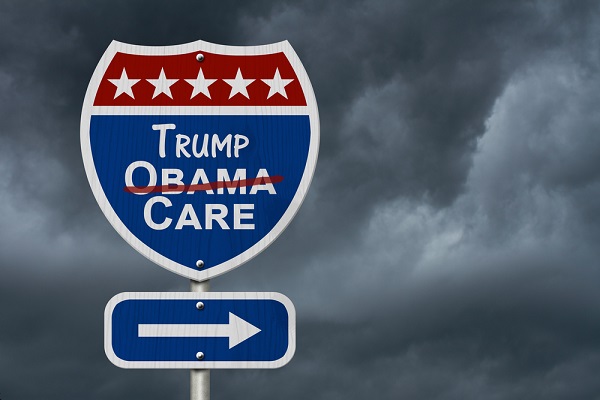 Insurers fear the Trump administration encouraging people to enroll in short-term plans will make the ACA market "look like a high-risk pool." (Photo: Shutterstock)
Insurers fear the Trump administration encouraging people to enroll in short-term plans will make the ACA market "look like a high-risk pool." (Photo: Shutterstock)
The Affordable Care Act faces an "uncertain future," according to a recent report from the Robert Wood Johnson Foundation that examines how insurers are reacting to recent attempts by Congress to chip away at the health law.
"Although data suggest that insurers are entering 2018 on much sounder financial footing than in the early years of the ACA's marketplaces, several policies are in place this year that threaten insurers' long-term participation in the marketplaces and the affordability of ACA coverage," says the report.
Recommended For You
The most notable policy changes are the repeal of the individual mandate, which was signed into law by President Trump as part of the December tax bill, as well as the Trump administration ending cost-sharing payments to insurers.
The Trump administration has made other moves that could also weaken the ACA market. It has shortened the enrollment period as well as dramatically reduced spending on marketing enrollment.
Finally, the administration has expanded the availability of short-term plans that operate outside of the ACA marketplace and often do not provide the types of preventative services required of Obamacare plans. That decision may lead younger, healthy people to opt for cheaper, short-term plans, leaving the ACA marketplace with a sicker, costlier population.
Some insurers are more pessimistic about the implications of the GOP policies on their ACA business. "Some felt it would ultimately lead to a collapse of the market and are considering further retrenchment; others felt confident that a market for highly subsidized, low-income consumers would continue," says the report.
All the insurers agreed that the repeal of the individual mandate would lead to premium increases. They offered a range of opinions on how much premiums would go up as a result. On average, insurance professionals anticipated an increase of 8 percent, but some said that they believed the repeal would lead to a departure of so many healthy customers that the market would collapse.
Insurers had to submit their 2018 premium rates months before they knew that the individual mandate was repealed. While some simply assumed the repeal would take place and priced their plans accordingly, others were prevented by state regulators from doing so. As a result, some plans that are cheaper this year may increase in price substantially next year.
Health plans reported increasing premiums by 10 to 20 percent as a result of the termination of CSR payments. However, due to state regulations, most of those increases occurred on silver-level plans, which in some cases led to customers being able to enroll in gold-level plans for less.
Insurers also voiced concern about the Trump administration encouraging people to enroll in short-term plans. Increasingly, said one executive, the ACA market will "look like a high-risk pool."
While the majority of ACA customers are eligible for tax credits that shield them from some of the premium increases, those who do not qualify for subsidies will increasingly find the plans too expensive, predicted one executive.
The report concluded: "Going forward, insurers will be watching closely how consumers respond to the lack of an individual mandate and the availability of new coverage options; a worsening of the marketplace risk pool will likely cause many insurers to reduce their market presence, will cause all to increase premiums, and may lead to more exits."
© Touchpoint Markets, All Rights Reserved. Request academic re-use from www.copyright.com. All other uses, submit a request to [email protected]. For more inforrmation visit Asset & Logo Licensing.






